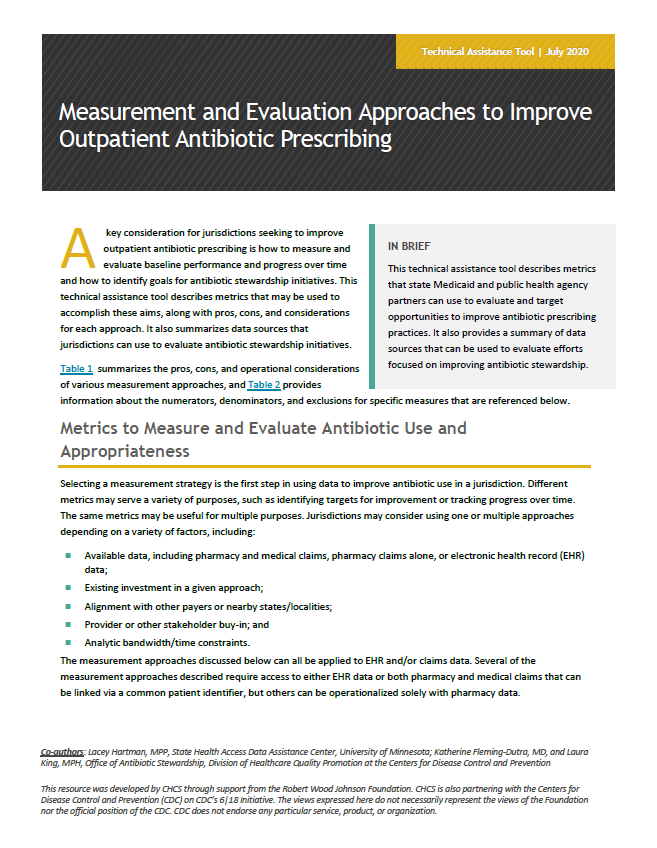
In the U.S., about 30 percent of antibiotics prescribed in doctor’s offices are unnecessary. Overprescribing can lead to antibiotic resistance, which makes treatment difficult, if not impossible, and can cost up to $20 billion in direct health care costs per year. Around 23,000 people die each year due to antibiotic-resistant infections. Antibiotic stewardship — the effort to measure and improve how providers prescribe antibiotics — is an important step to curb overprescribing.
A key consideration for jurisdictions seeking to improve outpatient antibiotic prescribing is how to measure and evaluate baseline performance and progress over time and how to identify goals for antibiotic stewardship initiatives. This technical assistance tool describes metrics that state Medicaid and public health agency partners can use to evaluate and target opportunities to improve antibiotic prescribing practices. It also provides a summary of data sources that can be used to evaluate efforts focused on improving antibiotic stewardship.